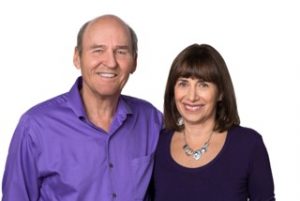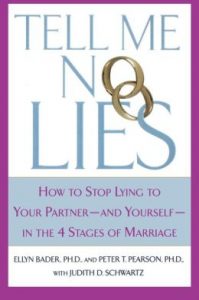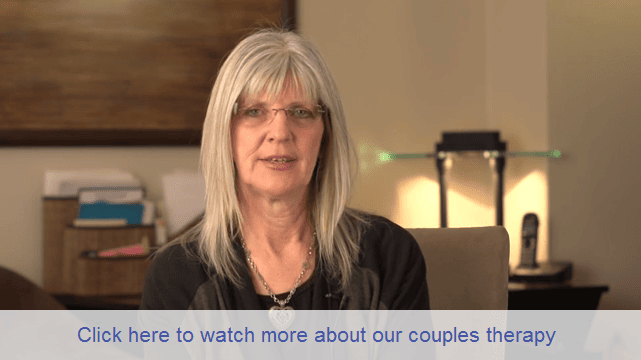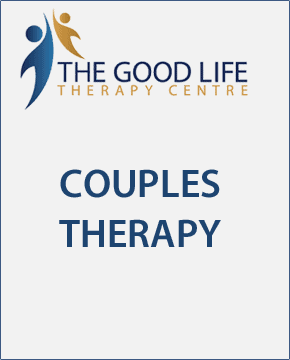Couples Therapy
If I decide to work with you and you decide to work with me, change will happen before your first session – Guaranteed!
Are you tired of the same old hurtful fights that never seem to get resolved?
Do you feel like you and your partner have drifted apart – unable to discuss difficult issues or resolve differences?
Has a betrayal occurred? or
Is there an addiction problem that has not been addressed?
In the face of an alarmingly high divorce rate in Vancouver and the rest of Canada, and a current ‘throw away’ mentality of marriage in our society, we believe that no matter how long your relationship has been experiencing difficulty, you can choose to change and grow, overcoming your hurt, disappointment and communication difficulties. We’re here to help you discover how you can make change happen by applying ongoing effort towards a clear and personally meaningful goal.
There are many reasons for seeking professional help for your relationship and all of them are equally important. Every couple deserves to have the relationship they are longing for. However, some couples come to therapy because they are unsure about whether their relationship is worth saving and need to discuss their concerns with a trained professional. There are also some couples who have decided to separate but want help in creating the best co-parenting relationship possible for the sake of their children’s wellbeing. However, the majority of distressed couples that we see, want a caring, loving and committed relationship with their partner, but lack the skills needed to sustain that kind of relationship together over time. Instead, what they end up doing is simply and painfully re-enact traumatic relationships modelled to them in their past.
In addition, what is difficult for couples working to save their marriages is the way we are all bombarded by media images of relationship breakups and quick ‘move-ons’. We would like to offer a new & hopeful perspective – one that allows you to gain the skills necessary to overcome the normal difficulties that are common in most partnerships, and deepen the love that originally brought you together.
If you can identify with this, or have been in distress in some other way in your primary relationship, the good news is that there is a way out.
Why Choose the Developmental Model of Couples Therapy?
Simply… because it is the best! Hands down.
Sure, there are people who will argue that certain other approaches are more popular or marketed with more flair. But that’s not what matters when it comes to that [often desperate] point in your life where you must improve, resuscitate or rescue your marriage.
This Approach has depth
What you need is proven demonstrations of how you can turn your life and love around – permanently. The last thing you want is limited or temporary success – that awful one step forward – two steps back; that fleeting relief that is impossible to sustain over time because nothing at the core of what is rotten in your relationship has been rooted out.
This superficial ‘quick fix’ approach leaves you struggling to find long term hope and contributes to the unbelievably high divorce rate of around 50%.
So, why settle for second best? Instead of short-term relief, why not go for full out freedom?
Why not roll up your sleeves, understand what happened to your marital bliss and acquire the essential skills and capacities necessary to change the landscape of your relational life?
The Developmental Model will help you with just that – it will give you the tools for transforming your personal and relationship stressors and guide you with clear-cut direction through to the finish line.
The Founders
The reason for the success of this outstanding approach has much to do with its creators. This model was developed by Dr’s Ellyn Bader & Peter Pearson, co-founders of the Couples Institute www.couplesinstitute.com.
 Not only have they been working side by side for the last 4 decades; they’ve been married to each other the whole time as well. They committed to bring a form of therapy to couples at a time when the field considered it impossible and irrelevant. Today, Drs. Bader & Pearson are pioneers extraordinaire.
Not only have they been working side by side for the last 4 decades; they’ve been married to each other the whole time as well. They committed to bring a form of therapy to couples at a time when the field considered it impossible and irrelevant. Today, Drs. Bader & Pearson are pioneers extraordinaire.
They have constructed an approach that is grounded in the very substance of what it means to strive to be the best version of your human self.
 They have led countless couples’ retreats, have trained thousands of therapists around the world and their second book, “Tell Me No Lies: How to Stop Lying to Your Partner – and You – in the 4 Stages of Marriage” has helped countless couples and therapists understand why and how couples get stuck in their marriages.
They have led countless couples’ retreats, have trained thousands of therapists around the world and their second book, “Tell Me No Lies: How to Stop Lying to Your Partner – and You – in the 4 Stages of Marriage” has helped countless couples and therapists understand why and how couples get stuck in their marriages.
Passing the torch
I am proud to count myself among the therapists who found these Mentors and I continue to study and learn from them. Not only do I feel I have the best theoretical and practical approach to offer you, I have grown in my own development, challenged myself to be a better version of myself in my own marriage and in all my relationships.
Much of my success has come from their support, encouragement and modeling of how to strive to be an exceptional human being.
They consistently model kindness, compassion and a brilliance beyond compare.
They are not only Masters in the field of couples therapy but are two of the most caring and giving individuals anyone could be fortunate enough to meet.
The Founders lead the way (prepare to be deeply moved)
If you want to experience a touching example of how they navigate important challenges in their own relationship, watch this short video:
If we should chose to work together, you will be in good hands.
 Since none of us can transmit what we don’t have, I pass on what I have learned by training the Associates who provide services at our Centre. That means that they too can give you with the best care possible. With the Bader-Pearson wisdom and knowledge behind us, our team will make every effort to carry their example forward, recognizing that they have equipped us well to do our job. If you are ready to take this important journey of self-discovery, we look forward to assisting you in the process.
Since none of us can transmit what we don’t have, I pass on what I have learned by training the Associates who provide services at our Centre. That means that they too can give you with the best care possible. With the Bader-Pearson wisdom and knowledge behind us, our team will make every effort to carry their example forward, recognizing that they have equipped us well to do our job. If you are ready to take this important journey of self-discovery, we look forward to assisting you in the process.
- How to talk about the tough issues you have been avoiding throughout your marriage
- How to manage conflict and stay calm in an argument
- How to become a team player so that you and your partner can feel supported in the process
- How to rekindle passion and have the sexual relationship you want
- How to express your deepest desires, dreams and fears and let your partner know you in a much more intimate way
- How to become your best self and the best partner you can be
- How to stay true to yourself while deepening your connection to your partner
We want to help you regain a sense of hope that change is possible. We want to communicate clearly that you can grow into the people you aspire to be. We believe that very rarely is all lost.
What I noticed is that when we first came into the room there was a negative charge. We had been feeling helpless in our ability to negotiate conflict. Neither of us was getting our needs met. We had hit a wall in our arguments, not knowing how to get out of our patterns and help each other. I would just get angry and triggered. As we worked through the session, we got more and more in sync and there was this attraction to each other that happened.
I am so grateful to have the opportunity to feel this intimacy with my wife. We’re closer and so in love right now. I found the initial session exciting – we left feeling like we really accomplished something for the relationship. We’re working on this together. I found the work really natural – I didn’t have to go and read three chapters of a book – it’s innate. It’s amazing to feel each other’s energy – that was really profound. I learned that it can work despite our differences. It was awesome and we will continue.
COMMON ISSUES THAT UNDERLIE RELATIONSHIP TROUBLE
1. Not knowing what constitutes a healthy relationship:
This is often the case when you lacked healthy role-models growing up. Many people grow up in alcoholic families, or in families where parents were preoccupied with unresolved traumas and losses of their own. As a result, their marriages suffered and love was often lost. Witnessing this as children creates a void – a lack of ability to envision an emotionally healthy and happy union that can then translate into everyday action with your partner. Instead, couples begin to replay what they witnessed in an unconscious repetition of the past. Most couples are surprised to discover how unavoidably true this is for them. It can be initially distressing, but becomes quickly empowering. What you learned can be unlearned and with the right guidance and a lot of effort on your part, new behaviours, based on health and wellbeing, will become the new standard.
Knowledge is power. Beginning to build and create a sense of a healthy partnership – one wherein trust is regained and openness and honesty prevail, will pave the road to a new life.
2. Developmental Difficulties with Intimacy & Attachment
Current neuroscience and the study of the brain is helping us understand how everything about us is developed within a relationship. When we are born our brains and nervous systems are not fully formed. They are built by the interactions we have with the outside world, and in early life that is usually our mother, father and family members. How we are treated determines how we treat ourselves and others. Most parents do the best they can with what they have, which often is insufficient to raise emotionally healthy children.
It has been shown that the way we attach early in life with our primary caretakers will, in many respects, determine how we attach later on as adults. We are attracted to partners who behave in ways that are familiar to our inner understanding of love relationships. We often long to have the fantasy of unconditional love that we missed out on in our upbringing. We want someone else to help us feel whole – loved and special. In this quest, we simply recreate with them another version of our original insecure attachment – either anxious, ambivalent, angry or avoidant. This isn’t always obvious in the early stages of a relationship, when hormones are running high and love for one another is blissfully merged. Yet, there comes a time when disillusionment and disappointment begin to arise, and without the developmental skills to maneuver through these difficult times, unhealthy patterns begin to emerge. Learning in therapy to work patiently on improving your current relationship patterns, couples earn a ‘secure attachment’ with each other – creating a deep sense of trust and intimacy coupled with a fully defined sense of autonomy. We are reprogramming our nervous systems by rebuilding new pathways for healthy and secure bonds to endure.
Brain science is inspiring hope – because we know now that healing and growth is possible throughout our lives. We can change anything we put our minds to!
3. Unresolved Trauma and/or Loss
Our emotional (survival) brain has functioned to keep us alive since our first ancestors faced the saber-toothed tigers. Whenever there is a perceived threat of any kind our brain and nervous system responds by either fighting, fleeing or freezing (becoming immobile in the face of danger). It’s built-in and biological and intended to preserve the self. The more we are exposed to ‘danger’, the more pain we will have stored in our emotional brains. The more pain that is stored, the more we will be ‘on the look out’ for trouble. And often, the more defended we will be.
The following list is just some of the many difficult experiences that take a toll on our ability to be open and vulnerable in our relationships as we are ‘wired’ for self-preservation when under threat:
- you and/or your parents are immigrants or war survivors
- your parents were too busy working and left you to fend for yourself
- you grew up in poverty
- you experienced an unexpected or tragic death of a parent/friend at an early age
- you lived in a dangerous neighborhood
- you were repetitively bullied at some part of your life
- you got involved in drugs and/or alcohol and/or criminal activity
These things impact our emotional availability in relationships in increasingly negative ways. We would all love to believe the myth that “Time heals all wounds.” Unfortunately, it’s not true. In fact, the longer we carry our unresolved hurt, sadness, and fear, the more defended we are and the more it limits us in our current interactions.
In relationships our unresolved trauma translates into being ‘triggered’ by things our partners say or do that remind us of the pain of the past. If you get ‘triggered’ a lot in your relationship, you are probably reacting with intense emotion, sometimes to things that may be considered by others to be quite minor. Often, couples will trigger each other’s emotional brains back and forth, establishing repetitive painful interactions that continue a pattern of re-traumatization. Since all of us will gravitate to the familiar, it’s so important to understand that your partner is not your enemy and that a key part to creating more health in your relationship involves separating out the past from the present.
4. Painful Unresolved Events Between You
Because of the issues listed above, partners will often attempt to ‘survive’ their difficulties in very ineffective ways. He or she may resort to addiction, verbal or other forms of abuse or even infidelity. These events create a huge emotional wedge between partners especially when the capacity to discuss and resolve them is missing. It is possible to work through your hurt, disappointment and anger in order to create a brighter future. In therapy, you can develop effective strategies for working through the tension that arises between you in a respectful and vulnerable way.
CHANGE THE WAY YOU THINK ABOUT CHANGE
Sophie: “I knew I loved him and wanted to be with him but I was not able to communicate at all. My exchanges were extremely frustrated – to the point where we would just walk away from each other – we came to a complete impasse.”
Bill: “I couldn’t talk at all. I was angry. I didn’t trust her at all. I felt triggered and I wanted to leave but at the same time, I cared about her. I didn’t think there was much hope. I thought a couple’s counsellor would see that we shouldn’t be together – and tell us so! Learning about the emotional brain and how it gets triggered helped me see where Sophie’s reactions were coming from. I always thought it was about me. You helped me make sense of that. I don’t blame her anymore.”
Sophie: “I’m able to be more objective now and not take Bill’s responses so personal. I’m also taking more responsibility for my own reactions and I’m even taking the ‘pause’ before reacting. There is not as much fear as before. We can talk about some tough issues now and stay together.”
Bill: “We have so much more hope now for our relationship. The dread I felt – the thought ‘I want out’ because we are completely doomed is gone. There is a plan to your process and you’re helping us get to where we want to be slowly. It’s almost scary how good it could be….”
Where the Solution Lies
We live in a world that teaches us to focus our attention outward most of the time. It follows then that when we approach our relationship breakdowns, it is more typical for us to point our fingers at our partners rather than at ourselves. “If only he/she would change, everything would be fine”. Unfortunately, it’s never a one-way street. It takes both of you to make the bliss and both of you to break it down. Learning to take the focus off of your partner and onto your own developmental growth will assist you to create the mature love you want. When each of you accepts that this is how change happens, you are on your way to manifesting your mutual goals.
Our approach to couples therapy goes beyond the idea of fixing the problem. It focusses instead on creating the relationship you are longing to have and becoming the best person you can be.
DIFFERENTIATION IS THE KEY TO HEALTHY FUNCTIONING
One of the key focuses of Bader-Pearson Developmental Model of couples therapy is the concept of differentiation. It is a word many of us may not be familiar with and yet is completely relevant to our capacity to thrive in a close personal relationship.
In short, differentiation is the ability to know yourself and risk expressing yourself – your truest thoughts, feelings, desires, fears and dreams to your partner. In other words, it is something you can’t do on your own. It’s different than being “independent”, because it also involves your ability to know your partner’s truest thoughts, feelings, desires, fears and dreams as well. To be independent is to be able to know what interests you and to go about seeking it. These are often healthy pursuits that help to define who we are. To be ‘differentiated’ is to be able to do so while at the same time maintaining a deep interest in and connection to your partner.
Differentiation is a developmental process that begins in the first few years of life, but often the process is thwarted. Many of us are faced with the need to complete this developmental task in our adult relationships so that we can act more ‘adult-like’ in our interactions. This approach to couples therapy will assist you to do exactly that.
A Journey of Courage and Self Discovery
If you have come this far, and are considering couples therapy, I hope you will give yourself some strokes for your courage. Couples therapy is not for the weak or faint of heart. It is for those who want more from life and love.
- to improve their current relationship and build something together that is based in change, growth and development;
- to get help in making a major life decision, such as, “Should we get married or not?” “Should we stay together or separate?” “How do we continue if one of us wants a child and the other doesn’t?”
- to dissolve the relationship – to say goodbye to one another – to go through a divorce or separation – to learn to co-parent children and resolve resentments so they do not carry over into their future relationships; or
Whatever reason is bringing you to therapy, you can be sure that you are demonstrating your commitment to living with integrity.
You and your partner can learn to transform toxic interactions into soothing tonic for you and your relationship’s soul. Choosing couples counselling takes courage. It means you are choosing to live in the solution rather than continuing to live with the problem.
All Potential and Knowledge are within. By your willingness to follow simple direction with joyful curiosity you will be relieved of pain & discomfort of all kinds.



